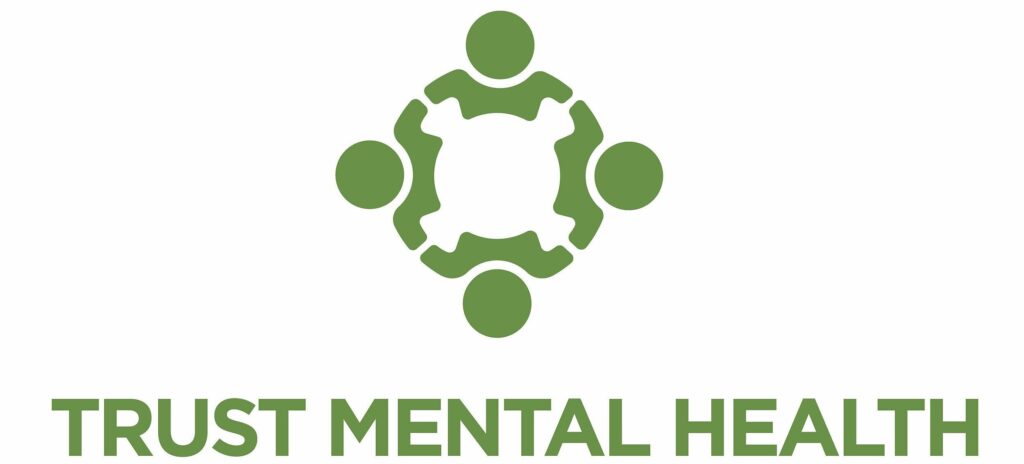Uncover six essential practices of parents who lead with confidence and purpose in this article from Trust Mental Health.

Avoid Projecting and Indulging in a Victim Mindset
A victim mentality is when you view yourself as the victim. You believe that things are done to you, and that you have little to no control over what happens to you. When you do not take personal responsibility for your life, your children will not either. When you have a victim mindset, you may be raising children with the same outlook. Below are a few ways you may inadvertently be doing this.
Are you fostering a victim mindset in your kids?
- Do you model a victim mentality through a defeatist attitude? For example, by saying things like, “Why does this always happen to me?”, or “There is no point trying, they are going to reject my idea like always.” Complaining about your circumstances without doing anything to improve them communicates a victimized outlook on life.
- Do you pity your child or indulge them in their pity party? Treating your child as if they are someone to be pitied can inculcate a victim mentality.
- Doubting what your child is capable of and highlighting what your child cannot do instead of what they are capable of can instill a victim mindset.
- Fostering too much dependence in your child. Do you let your child struggle?
Empowerment and Resilience
Empowered parents empower their kids and help them build resilience. They are mindful of unintentionally rewarding their child when they are a victim. For example, if your child was not invited to a playdate, avoid making it up to them by taking them out for their favorite ice cream. Being a victim should not result in getting rewarded.
Additionally, if your child is going through a rough patch, do not be too lenient on them. For example, excusing them from chores or letting them stay home from school reinforces a victim mindset.
On the other hand, be careful not to dismiss or diminish how your child is feeling. You can be empathetic toward your child and show you care. Do this by active listening. Show that you understand them by saying things like, “That must be tough”, or “I know this is difficult right now.” Focus on what your child can control and help them figure out options.
Get Comfortable with Feeling Guilty
As parents, that are a multitude of things that make us feel guilty. We may feel bad for not spending enough time with our children, or for missing a school function, or for snapping at them in a moment of tension. If you look for reasons to feel guilty, you will find them!
Feeling guilty can influence your parenting. If you parent out of guilt, you may deny yourself self-care or make unnecessary sacrifices and compromises. To alleviate feelings of guilt, you may give in to your children, resist disciplining them appropriately, or indulge in unreasonable requests. You may also do things to ‘make it up’ to them.
Manage Guilt
Empowered parents can tolerate feelings of guilt and forgive themselves for their parenting mistakes. They know that they are not perfect people and therefore cannot expect to be perfect parents! If you cannot change your behavior or the circumstances that trigger your guilty feelings, try changing the way you look at guilt. For example, feeling bad does not definitively mean that you have done something wrong. Do not let your children send you on guilt trips.
Make sure that you can go to bed thinking, “I did my best. I will continue to strive to be good enough.” Instead of striving for perfection, aim to be the best parent you can be, and to learn from your mistakes. Your children will see your efforts and perhaps even appreciate them one day!
Avoid Parenting from Fear
Do you parent from a fear-based place or mindset? Parents may do this to help manage their own anxieties. But constantly erring on the side of caution may be stifling for your child. This is especially true if your parenting decisions are more to alleviate your stress than ensuring what is best for your children. Parenting out of fear can make you overly protective, avoidant, intrusive, or a micromanager. Additionally, the fears and anxieties that you model or voice can become your child’s fears and anxieties.
Teach Kids How to Keep Themselves Safe
Empowered parents teach their kids the skills they need to keep safe. Make your children aware of practical things they can do to be safe. Avoid removing all worry-inducing circumstances from your child’s experiences. Instead, teach them how to assess risk and give them lessons on safety. For example, teaching them how to carefully cross a road, telling them why they need to wear a helmet while bike riding, or giving them a plan of action in the event that they get lost.
Focus on Courage
If your child is fearful, instead of trying to decrease their fear, focus on how to increase their courage and teach them ways in which they can ensure their safety. Tell them that fear is a healthy, natural emotion that serves to warn them of danger. Your children should know which responses in their body indicate fear, which fears are valid, and which are false alarms.
Be a Strong Parent
Is your child empowered, or do they have power over you? Empowered parents do not allow their children to change their parenting decisions. They have set rules and boundaries and do not need to bribe their children to make them cooperate. They avoid power struggles and have a dynamic of mutual respect with their child.
Empower Yourself
Set boundaries and follow through with natural consequences. Do not give away your power by entering into a battle of wills with your child or by agreeing to conditional good behavior. Employ the use of reasonable rewards now and then – this is very different to bribing. Stay cool and calm – if you become dysregulated and begin to argue, so will your child. Learn to recognize any manipulative behavior in your child and do not go along with it.
At the same time, you can teach your child to use empowered language. Knowing that they have a voice that will be acknowledged and validated when used properly can build self-esteem in young people. Help them identify the choices and areas of their life that they have control over and can effect change in.
Encourage Effort, Not Perfection
Empowered parents encourage effort in their children instead of perfection. They give their children the space to do things their way (in an age-appropriate way) instead of imposing their methods on them. Self-worth comes from within, not from their child’s accomplishments and talents. They allow their children to take part in activities that are in line with their interests, instead of only allowing them to engage in activities that they excel in. Their children are given more praise than criticism.
Think about the messages around success and failure you give your children. Model forgiveness for one’s own mistakes, and your children will learn to be gentle on themselves when they fall short. Show them that you accept them and love them the same whether they succeed or fail.
Hold Children Accountable
Do you give your children enough age-appropriate responsibilities? Empowered parents hold their children accountable and do not let them avoid responsibility. They do not do things for their child that the child is able to do for themselves. They assign chores and do not nag them with reminders or lectures. They make sure to teach their children life skills. Life skills include things like managing money, doing laundry, cooking a simple dish, or education about informed nutritional choices.
If responsibilities are not met, natural consequences follow and privileges may be taken away. Additionally, when a child is irresponsible, the parent will accept an explanation, but not excuses. Bailing out a child every time he messes up will not help.
For the full article, visit the original post.
Read more articles like this on the Trust Mental Health blog.
Trust Mental Health offers family therapy, BIPOC therapy, and therapy for children in California. Contact them for a free 15 minute consultation if you need additional support.



